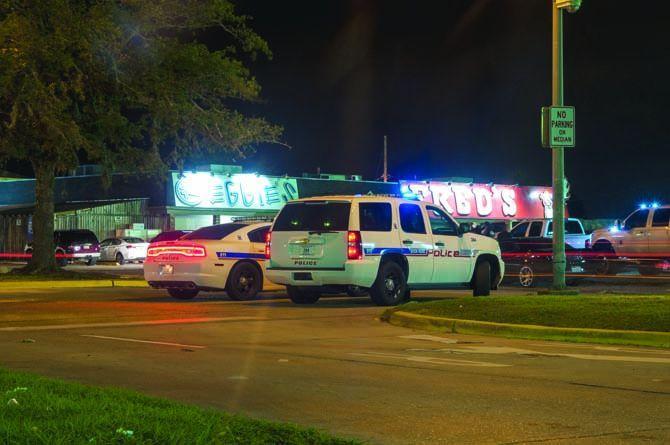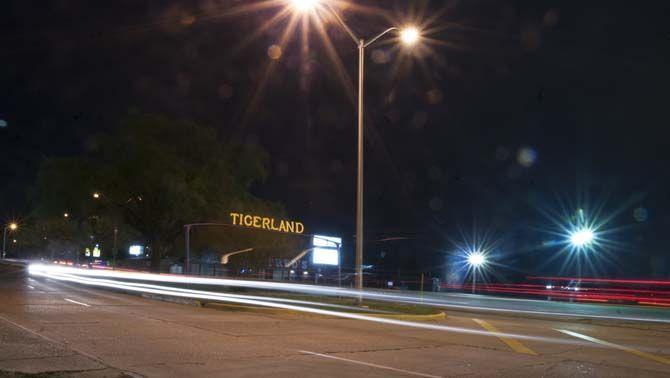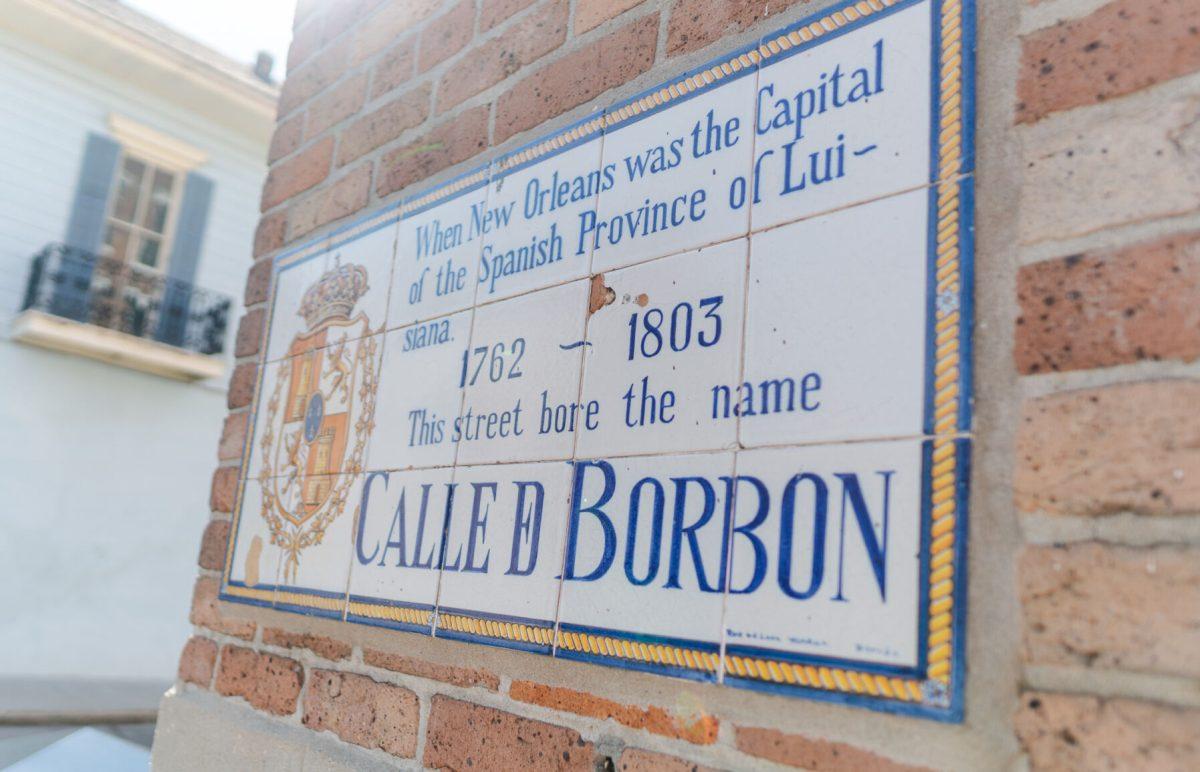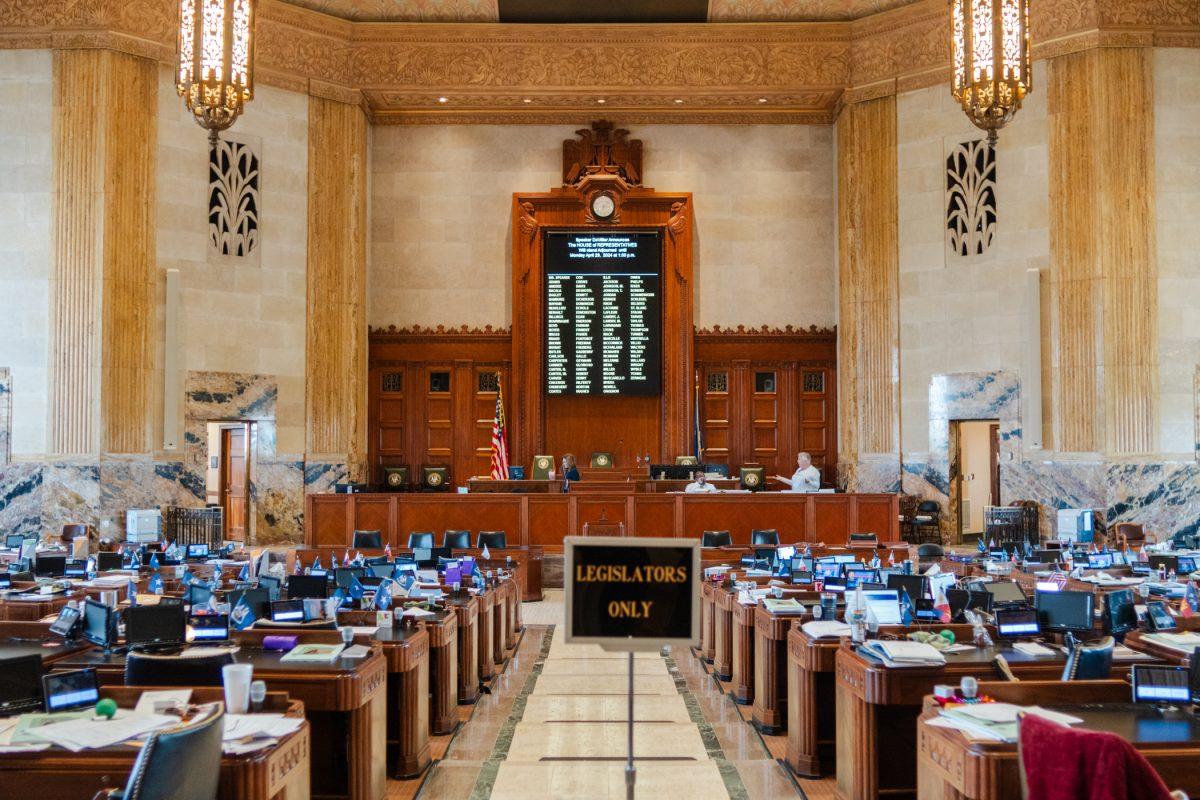Underage purchase and possession of alcohol offenses in Tigerland constituted about half of all of Baton Rouge’s underage purchase and possession incidents for every year since 2011, according to Open Data BR.
The data shows 2015 was the worst year for drinking-related crime in the area since 2011, with 286 incidents ranging from public intoxication to drinking in a motor vehicle. Underage purchase and possession of alcohol incidents, minor in possession incidents and misrepresentation of age to obtain alcohol incidents rose by about 15 percent between 2014 and 2015.
East Baton Rough Parish District Attorney Hillar Moore said the Louisiana Office of Alcohol and Tobacco Control and Alcoholic Beverage Control and Gaming Enforcement commissioners have attended meetings with the DA, law enforcement and Tigerland stakeholders to discuss alcohol sales, juveniles and fights at bars in Tigerland.
State Rep. Patricia Smith, D-Baton Rouge, whose congressional district borders Tigerland, said business robberies and bar fights, the latter of which she said can lead to shootings, are Tigerland’s biggest crime crises.
Reports of assault, battery, business robbery, criminal damage to property, individual robbery, non-residential burglary, theft, vehicle burglary and firearm incidents have all risen between 2014 and 2015 in the area.
During that time, incidents of battery in Tigerland rose from 95 to 120, cases of criminal damage to property increased from 97 to 146, reports of theft hiked from 231 to 258 and vehicle burglaries went up from 159 cases to 202, according to the data.
BRPD spokesperson Sgt. Don Coppola said police increased patrols in Tigerland to have “more of a visual presence” in the neighborhood starting in August 2015, roughly a month before the District Attorney’s special law enforcement agency, the Crime Strategies Unit, began focusing extra attention on the area.
Between August 2015 and December 2015, BRPD’s increased patrols in Tigerland cost more than $36,000, Sr. Special Assistant Parish Attorney Kim Brooks said in an email.
When CSU was established in September, Moore said it identified and focused resources on three other areas with increased crime before noticing significant crime increases in Tigerland.
More than two months ago, the CSU, LSUPD and BRPD visited Tigerland with Probation and Parole officials to identify and arrest neighborhood residents with outstanding warrants and alert other residents that there would be a greater police presence, Moore said.
“We’d do the same thing in any area of town that pops up for increased activity,” he said. “But Tigerland just stood out.”
There was also discussion of a possible memorandum of understanding between LSUPD and BRPD, which would allow LSUPD to aid patrols under BRPD’s jurisdiction, particularly in Tigerland. However, LSUPD spokesperson Lt. Marshall Walters said the LSUPD manpower necessary to patrol the Tigerland area would have dramatically diminished the police force’s service on campus, and the memorandum was scrapped.
Business junior and Reggie’s assistant manager Kristian Jessen said BRPD stationed officers outside Tigerland bars from around 9 p.m. to 2:30 a.m. on busy nights during last semester’s football season.
Frankie Rusciano, who has worked at Mike’s in Tigerland for six years, said he has seen a visible increase in BRPD patrols in the past few months, with some officers stationed three nights a week on assigned extra duty detail last semester which was separate from the patrols.
Moore said the area has been “waving its hands” at the District Attorney’s office for the past several years, which prompted meetings to begin in October 2015. Since then, Tigerland stakeholders such as LSU President F. King Alexander, area business owners and homeowners, the Louisiana Office of Alcohol and Tobacco Control officials and Alcoholic Beverage Control and Gaming Enforcement commissioners and Baton Rouge law enforcement officials have held multiple meetings regarding Tigerland’s future. These parties have also met with the BRPD and LSUPD chiefs of police and the East Baton Rouge Parish sheriff.
Overall crime has decreased in the Tigerland area by more than 20 percent since October, Moore said.There have been at least three meetings, one at a Tigerland bar with every area bar owner and manager present and the other two at the District Attorney’s office, to discuss Tigerland safety and security improvements for bars and residents.
Moore said the biggest issues in Tigerland are violence at bars and “heightened criminal action.”
Alexander previously told The Daily Reveille the University is experimenting with different ways to combat the issue of minors entering Tigerland bars, including using students’ Tiger Cards for additional age verification.
Alexander, whose daughter is a nursing sophomore at the University, said crime rates in Tigerland are a “constant worry” for him.
“I have two hats. I’ve got a real kid going in and out of [Tigerland], and I’ve got all of my other kids out there, too,” he said. “I’ve got a very large family.”
Aside from occasionally being victims of Tigerland’s overall crime uptick during the past several months, Moore said he does not believe students are involved as criminals, though they may contribute to barroom crime.
Moore said “98 percent” of Tigerland residents want to live in a safe, quiet environment, and there are only a few bad actors causing trouble.
Attorney and real estate broker Cheri Smith-Harrison, who has owned her fourplex in Tigerland for three years, rents to one law student from Southern University, two University PhD students and two University graduate students. She said the larger complexes in Tigerland still house a great percentage of students.
“Some of the attraction is the new developments [outside Tigerland],” Smith-Harrison said. “But that doesn’t mean they don’t relocate back.”
Once reality checks in and students have to consider transportation and factors other than lazy rivers and tanning beds, Smith-Harrison said, “the new isn’t as great anymore,” and they return to cheaper, closer-to-campus areas like Tigerland.
University alumnus Kentravis Aubrey has been working at Tiger Plaza Apartments in Tigerland since 2011 until recently. He said many New Orleanians relocated to Tigerland after Hurricane Katrina because of the area’s affordability.
Aubrey said landlords saw it as an opportunity to fill their apartments, and ignored running background checks or routine screening processes.
“That’s basically how Tigerland got overrun with so much negativity,” Aubrey said.
Smith said the neighborhood is in an overall high-crime district and has changed demographically because some students have moved to places like Burbank Drive. They feel more secure there, she said, though some remain in Tigerland because of its affordability.
She said she wants to see a business association form in Tigerland like the one established at the North Gates, which hosts street parties to raise money and works to keep students safe.
Tigerland homeowners and business owners also want to organize a crime prevention district, which would allow officials to hire private officers to patrol the area by taxing citizens, Moore said.
Because the crime prevention district is being funded by property owners, not the state, Smith said homeowners and landlords may have to pass the fee on to renters.
“They’ve been discussing this long enough,” Smith said. “It’s time for them to act.”
Moore said stakeholders are also collaborating with Entergy to upgrade lighting in the area to make it brighter and safer.
Smith-Harrison said the biggest issue is that Tigerland is an “easy target” for car burglaries. Lighting improvement, which “makes a big difference in crime prevention,” could take place within the next few months, she said.
Tigerland businesses have security cameras, but they are “shams” that barely work, Smith said, and state-of-the-art security systems are necessary to properly deter crime in these businesses.
Smith-Harrison hopes to place high-security cameras, “tied into” the National Crime Information Center, at Tigerland’s two entrances. The cameras would feed into the police system and read license plates to show stolen vehicles, active warrants and wanted people.
Smith-Harrison plans to campaign for $32,000 to buy two $16,000 cameras, translating to a one-time fee of $35 per apartment unit in Tigerland.
Smith-Harrison said many Tigerland property owners she has talked to, including bar affiliates, are willing to pay this fee. She also plans to solicit additional financial help from the bars and set up a GoFundMe account for student residents’ parents and anyone else who wants to donate.
Tigerland stakeholders, law enforcement fight back against rising crime
By Sarah Gamard
March 30, 2016
Baton Rouge police position themselves in the median outside of the bars on Monday Nov. 16, 2015, at Reggie’s and Fred’s in Tigerland.
More to Discover









